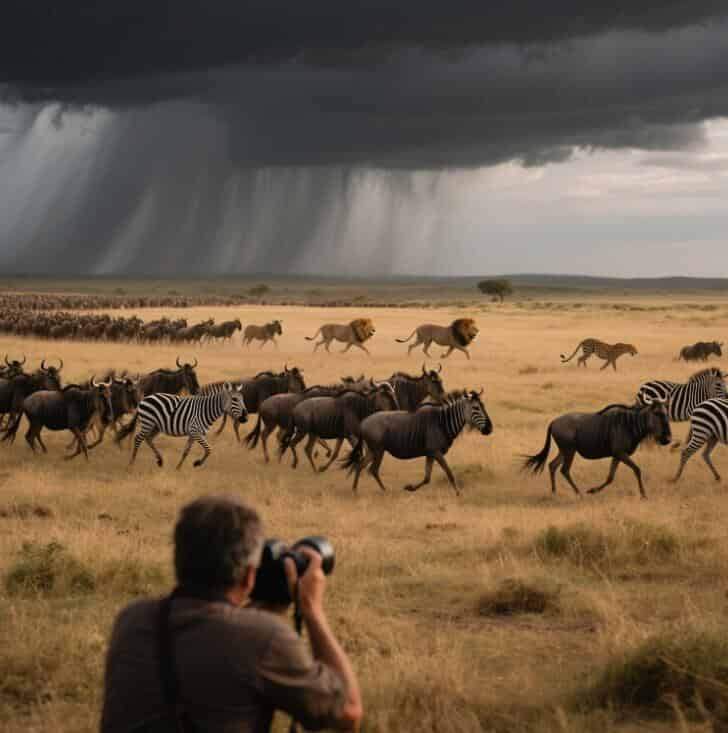Beyond the realm of passport stamps and souvenir shops lies travel’s true magic—its power to fundamentally alter who we are. Like ancient alchemists seeking to transform base metals into gold, modern travelers embark on journeys that transmute perspectives, reshape values, and ultimately redefine their place in the world. This transformative process unfolds through several distinct yet interconnected phases.
Phase 1: The Unlearning
Every meaningful journey begins with the dissolution of preconceptions. Standing before Angkor Wat at dawn, the first-time visitor realizes no documentary could capture the way morning mist clings to ancient stones. The Tokyo commuter learns that orderly chaos can be more efficient than rigid systems. These moments of cognitive dissonance—where reality contradicts expectation—create the mental space for growth. Neuroscientists have identified this as the “traveler’s paradox”: the discomfort of being wrong about a culture often precedes the most significant learning breakthroughs.
Phase 2: The Sensory Awakening
Travel rewires our perception through what anthropologists call “embodied learning.” The scent of saffron in Marrakech’s markets, the tactile memory of hand-rolling pasta in Bologna, the sonic landscape of a Balinese gamelan orchestra—these sensory imprints bypass intellectual understanding to create cellular memories. A 2024 Cambridge study revealed that multisensory travel experiences activate parts of the brain associated with emotional processing and self-concept more intensely than visual-only encounters. This explains why we remember the texture of a Turkish carpet decades later but forget museum placards within hours.
Phase 3: The Mirror of Otherness
In the reflection of unfamiliar cultures, we see ourselves anew. The American executive who witnesses Spanish siestas reconsiders work-life balance. The European traveler encountering Japanese omotenashi (selfless hospitality) questions their own notions of service. This mirroring effect, documented in cross-cultural psychology research, demonstrates how exposure to alternative ways of being serves as powerful catalyst for personal evolution. The most transformative destinations aren’t necessarily the most spectacular, but those most different from our daily realities.
Phase 4: The Altered Return
True travel alchemy occurs in the homecoming. The changed traveler notices previously invisible patterns in their own culture—the unconscious rhythms of consumerism, the unspoken social hierarchies, the taken-for-granted privileges. This “reverse culture shock,” once considered a re-entry problem, is now recognized by sociologists as evidence of successful transformation. Many report developing what psychologists call “permanent peripheral vision”—the lasting ability to view their own culture as both insider and anthropologist.
Modern Alchemy Tools:
Contemporary travelers enhance their transformative potential through:
- Language immersion programs that rebuild neural pathways
- Culinary apprenticeships from Oaxaca to Lyon
- Pilgrimage routes like Spain’s Camino serving as moving meditation
- Digital nomad communities creating “third cultures”
- Voluntourism programs emphasizing skill exchange over charity
The New Ethics of Transformation:
As travel’s metamorphic power becomes better understood, responsible travelers must consider:
- Avoiding “transformation tourism” that treats locals as backdrops
- Choosing slow travel that allows reciprocal relationships to form
- Supporting social enterprises that keep value within communities
- Practicing “leave no trace” principles for cultural encounters
The alchemical journey ultimately proves that travel’s greatest souvenir isn’t a trinket, but an expanded version of oneself—one that carries within it the spices of Marrakesh, the silences of the desert, the laughter of strangers who became friends. In an age of algorithmic predictability, travel remains humanity’s last great unpredictable teacher, continuing to surprise us not just with the world’s wonders, but with our own untapped potential for change.
